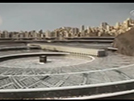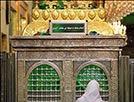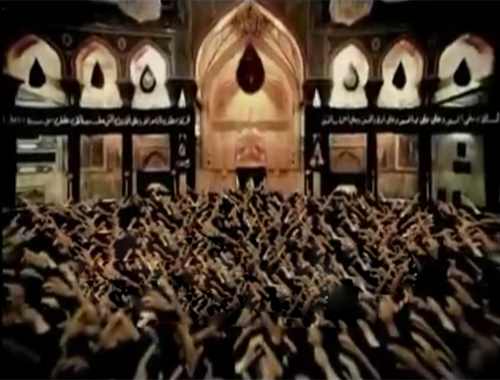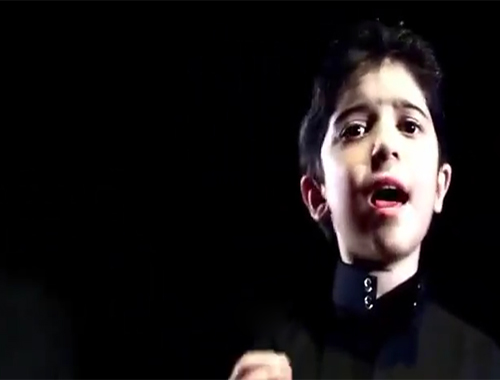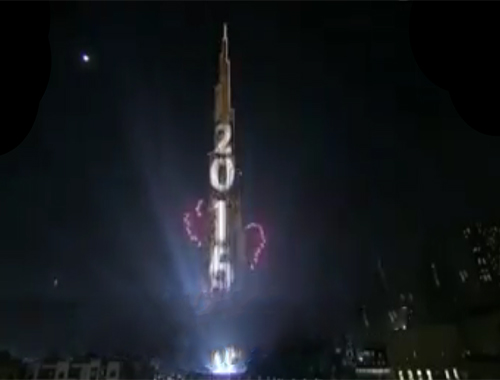THE IMAM, THE STRAIGHT PATH OF GOD
- Details
- Hits: 2226
THE IMAM, THE STRAIGHT PATH OF GOD
As he was asked about the meaning of 'the straight path' in the Quranic Verses, Imam Sadiq (a.s) answered: هوَ والله٠عَلÙيٌّ. هوَ والله٠الصّراط٠والمÙيزانÙ. ?By Allah, it is Ali. He is the Straight Path and the Balance.?2
Sheikh Saduq says: As Imam Sadiq (a.s) was asked about the 'Straight Path', he answered: هوَ الطّريق٠إلى معرÙÙة٠الله٠عزَّ وجلَّ وهÙما صÙراطانÙ: صÙراطٌ ÙÙŠ الدّنيا وصÙراطٌ ÙÙŠ الآخÙرةÙ. وأمّا الصّÙراط٠ÙÙŠ الدّنيا ÙÙ‡ÙÙˆ الإمام٠المÙÙتَرَض٠طاعتÙÙ‡ÙØ› Ù…ÙŽÙ† عرÙÙÙŽÙ‡Ù ÙÙŠ الدّنيا واقتَدى بÙÙ‡Ùداه٠مَرَّ على الصّÙراط٠الّذي هو جÙسر٠جَهَنَّمَ ÙÙŠ الآخÙرة٠ومَن لم يَعرÙÙْه٠ÙÙŠ الدّنيا زلّتْ قَدَمÙه٠عَن الصّÙراط٠ÙÙŠ الآخÙرةÙ.
?It is the path to the knowledge of Allah, Glorified and Majestic is He. They are two paths; one is in the world and the other in the Hereafter. The path in this world is the Imam the obedience to whom is obligatory. Whoever knows him and follows his guidance will pass the Bridge of the Requital in the Hereafter. But whoever does not know him in this worldly life will stumble and fall into Hell.?3
Imam Sadiq (a.s) also says: الصّÙراط٠المÙستَقيم٠أمير٠المؤمÙنينَ عليه السلامÙ.
?The Straight Path is Amir ul-Mu'mineen (The Commander of the Faithful; namely Imam Ali).?4
____________
1 See Kelimat Meknuneh Faiz; 159
2 See Kelimat Meknuneh Faiz; 161 (as quoted from Bassa'ir ud-Darajaat)
3 See Kelimat Meknuneh Faiz; 160
4 See Kelimat Meknuneh Faiz; 161 and Tafsir al-Mizan; vol. 1 p. 39
--------------------------------------------------------------------------------
( 55 )
Imam Ali (a.s) says: أَنا صَلاة٠المÙؤمÙنينَ وصÙيامÙÙ‡ÙÙ….
?I am the prayer and the fasting of the believing men.?1
Some people however have misinterpreted the above-mentioned Hadith, claiming that when one recognizes his Imam, he is not obliged to perform the religious duties, for the recognition of the Imam is considered as prayer, fasting, Hajj, almsgiving, and jihad. They invoke the Hadith, 'When you reach the stage of cognition, do as you wish.'
Rejecting this idea, Imam Sadiq (a.s) says:
إنَه٠مَن كَانَ يَدين٠بÙهذÙÙ‡ الصّÙة٠التي ÙƒÙتÙبَت ÙÙ‡ÙÙˆ عÙندي Ù…ÙشرÙÙƒÙŒ بÙالله٠بَيّÙن٠الشّÙرك٠لا شكَّ ÙيهÙ. لم يبعث٠الله٠نبÙياً يدعو إلى مَعرÙَة٠ليسَ معَها طاعَةٌ ÙÙŠ أمر٠ونهي٠ÙØ¥Ùنما يَقبل٠الله٠منَ العباد٠العملَ بالÙَرائض٠الّتي اÙترضَها الله٠على ØÙدودÙها مع معرÙÙØ©Ù Ù…ÙŽÙ† جاءَهÙÙ… به٠مÙÙ† عندÙه٠ودعاهÙÙ… إليه٠Ùأوّل٠ذلÙÙƒ معرÙØ©Ù Ù…ÙŽÙ† دَعا إليه٠ثمّ طاعتÙÙ‡Ù Ùيما يقرّبÙه٠إليه٠مÙÙ† الطاعة٠له٠وأنّه Ù…ÙŽÙ† عرÙÙÙŽ أطاعَ ومَن أطاعَ Øرّم الØرامَ ظاهرَه٠وباطنَهÙ.
?He who believes in such matter is, in my sight, evidently polytheist. Allah has not ordained any prophet to invite people to cognition without obeying the commandments and prohibitions being accompanied by cognition. Allah has asked His servants to act to all religious duties but after getting to know the one who has brought those commandments and calls people to Allah. Therefore, cognition is of primary and obedience is of secondary importance. Whoever reaches cognition will become obedient and whoever becomes obedient will consider disobedience as sin.?
Mohammad ibn Marid reported:
Ù‚Ùلت٠لأبي عبدÙالله٠عليه٠السلامÙ: Øَديثٌ رÙÙˆÙÙŠÙŽ لنا أنّك Ù‚Ùلتَ "إذا عَرÙْتَ Ùَاعمَلْ ما Ø´Ùئتَ؟" Ùقالَ (عليه السلام): قدْ Ù‚Ùلت٠ذلكَ. قلتÙ: وإÙنْ زَنوا أو سَرقوا أو شرÙبوا الخَمرَ؟
____________
1 See Qadi Saeed Qummi's Asrar ul-Ibadat, p. 6
--------------------------------------------------------------------------------
( 56 )
Ùقالَ (عليه السلام) لي: Ø¥Ùنا لله٠وإÙنا إليه٠راجÙعونَ! والله٠ما أنصَÙونا أَنْ نكÙونَ أخَذنَا بالعَمل٠ووÙضÙعَ عنهÙÙ…. إنمَا قلت٠إذا عرÙÙتَ Ùاعملْ ما Ø´Ùئتَ من قَليل٠الخَير٠وكثيرÙÙ‡ Ùإنّه ÙŠÙقبل٠مÙنكَ.
I asked Imam Sadiq (a.s) whether he has actually said the hadith, 'When you reach the stage of cognition, do as you wish,' that is related by some people. The Imam said: ?I have said it.?
I asked: ?Even such doings are adultery, theft, or drinking of wine??
He (a.s) answered: ?Surely, we belong to Allah and to Him we will return.1 By Allah, it is not fair that we are obliged to perform religious duties and they are free! I have said that when you reach the stage of cognition (of Allah), do good deed a little or as much as you can, for it will be accepted by Allah.?2
SUMMARY
To sum it up, the external feature of the Hajj rites represents spiritual journey of a perfect man who has gone through different stages of servitude, detached from worldly ties and ornaments, and rescued from darkness and entered into the illuminated kingdom of God. Therefore, a true Hajj is an evolution in soul. It is not a plaything or entertainment as some ignorant people think, for their performance is more like a game than worship.
Malik ibn Anas says:
One year, I accompanied Imam Sadiq (a.s) in the Hajj pilgrimage. Being on the back of his horse and in the state of Ihram, the Imam (a.s) was trying to utter 'Labbayk' but his voice stuck in his throat. He therefore rode off his horse. I said: ?O son of the Messenger of Allah! Say 'Labbayk', you have to say it.? He (a.s) replied: يا بنَ أبي عامÙر، كيÙÙŽ أجسÙر٠أنْ أقولَ: لَبّيْكَ اللّهمَّ لَبّيكَ، وأخْشى أنْ يَقولَ عزّ وجلّ لا لَبّيكَ ولا سَعْدَيكَ.
____________
1 This statement is an expression of grief.
2 See Usul al-Kafi; vol. 2 p.464
--------------------------------------------------------------------------------
( 57 )
?O son of Abi-Amir, how dare I say it? I fear that Allah will not answer me nor let me in.?1

